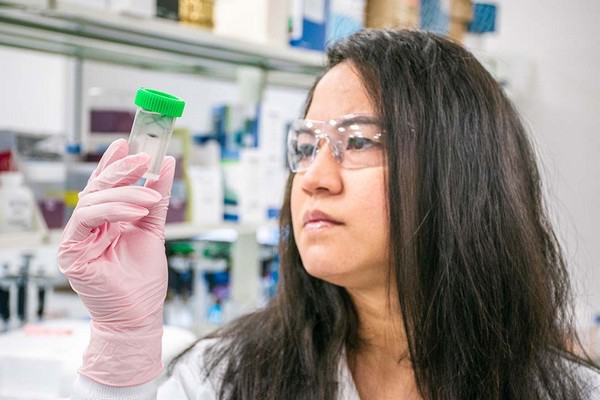With a dramatic increase in global food insecurity caused by a number of different factors, the Government of Canada is committed more than ever to strengthening Canada's leadership role in food production and innovation. The government is supporting agri-food, biotechnology, and biomanufacturing innovations that are needed to help meet increasing demands for safe, healthy food.
To support this critical economic sector, the Honourable Dan Vandal, Minister for PrairiesCan, today announced funding of $2.5 million for the Global Institute for Food Security (GIFS) at the University of Saskatchewan (USask) to help build Canada's only biomanufacturing facility dedicated to advancing sustainable agriculture and innovative food ingredients.

The Global Institute for Food Security (GIFS) at the University of Saskatchewan (USask). (Photo: David Conlin)
Saskatchewan is an agricultural powerhouse containing 44% of Canada's arable farmland and home to one of the world's strongest agri-science ecosystems. It is in a unique position to help meet market needs for agri-food and biotechnology products and to be a leader in feeding Canadians and the world.
This investment, provided through PrairiesCan's Regional Innovation Ecosystems (RIE) program, creates an agri-food hub within an emerging Canadian network of biomanufacturing centers in Quebec, Ontario, British Columbia, and now Saskatchewan that are bringing this technology to health care, materials science, and environment markets. This new infrastructure will help Canadian researchers and processors better compete in agri-food industries, increase the pace of research into sustainable agriculture, attract foreign investment to Canada, and supply training in this growing field of research while creating high-quality jobs in Saskatchewan.
GIFS plays a critical role in the discovery, development, and delivery of innovative agri-food and biotechnology products that meet market demand efficiently and sustainably. This expansion will combine genomics, machine learning, and automated biology to create proteins, peptides, and metabolites. These building-block technologies can help food last longer, make plants more resistant to disease, reduce allergens, or improve nutrition in food products.
Today's investment helps GIFS produce these technologies quickly, decreasing the time researchers need to test theories and creating exponential opportunities for innovation in agriculture, agri-food, and biomanufacturing. It will also improve Canada's biomanufacturing capacity for other stakeholders in the agriculture and biotechnology sectors as the federal government expands Canada's domestic biomanufacturing sector.
For more information: University of Sasketchawan
University of Sasketchawan
www.usask.ca
